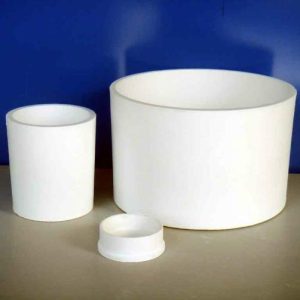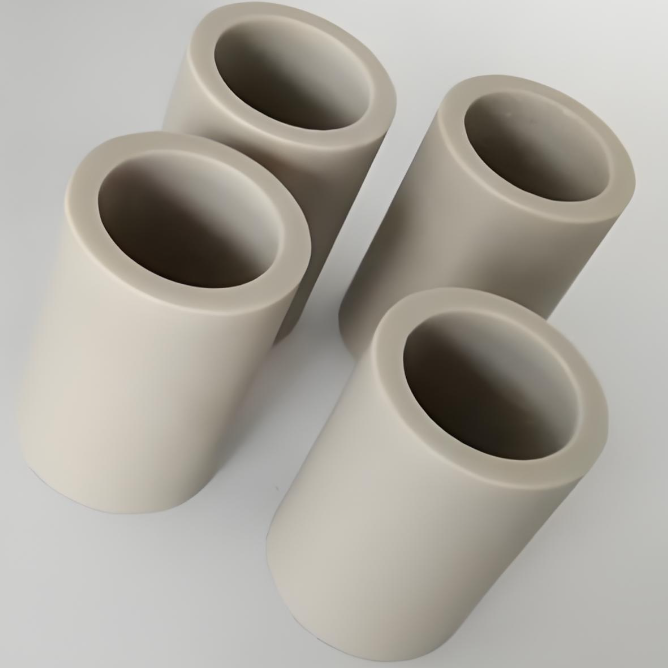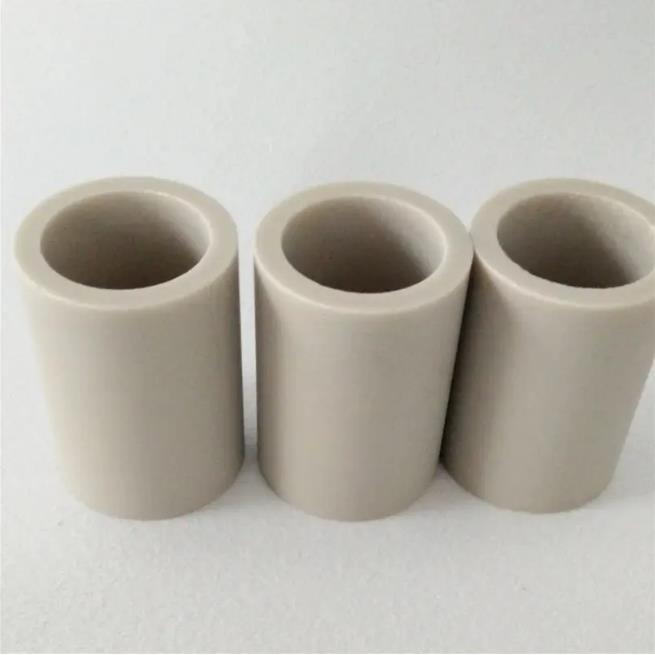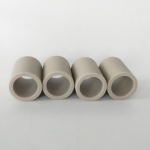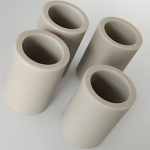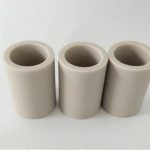Discover Premium Ceramic Products | Durability & Elegance United | Advanced Ceramics
PRODUCT PARAMETERS
Description
Overview of Aluminum Oxide Ceramic Tube
Aluminum oxide ceramic tubes, also known as alumina ceramic tubes, are a type of technical ceramics made primarily from aluminum oxide (Al₂O₃). These tubes are renowned for their excellent mechanical properties, including high hardness, wear resistance, and strength at elevated temperatures. They also exhibit superior electrical insulation and thermal stability, making them suitable for a wide range of industrial applications.
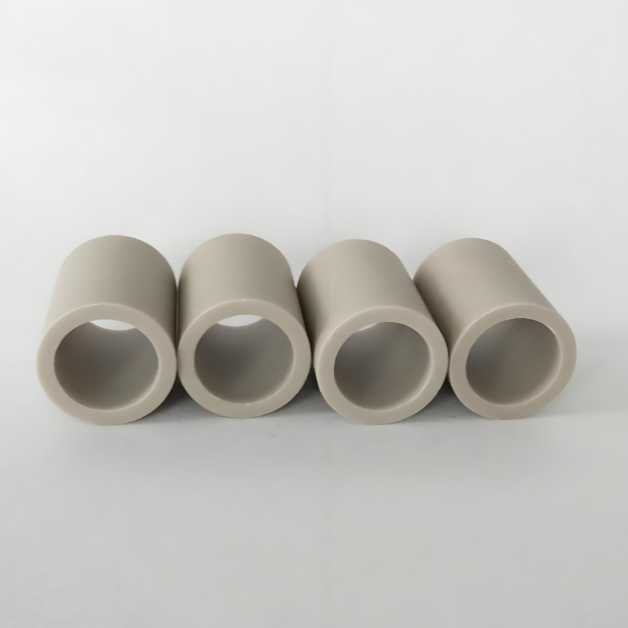
Specifications of Aluminum Oxide Ceramic Tube
| Property | Typical Value |
|---|---|
| Chemical Composition | Al₂O₃ ≥ 95% |
| Density | ~3.95 g/cm³ |
| Flexural Strength | Up to 400 MPa |
| Compressive Strength | >3 GPa |
| Vickers Hardness | ~18 GPa |
| Thermal Conductivity | ~30 W/m·K |
| Coefficient of Thermal Expansion | ~7.5 x 10⁻⁶/K |
| Dielectric Strength | >15 kV/mm |
Features of Aluminum Oxide Ceramic Tube
- High Hardness: Alumina ceramic tubes possess high hardness which makes them resistant to scratches and abrasions.
- Corrosion Resistance: They offer outstanding resistance to chemical attack by acids and alkalis under various environmental conditions.
- Thermal Stability: These tubes can maintain their physical properties at high temperatures without degrading.
- Electrical Insulation: They provide good electrical insulation properties, making them ideal for electrical applications.
- Dimensional Stability: Minimal expansion or contraction with temperature changes ensures stable dimensions.
- Biocompatibility: Suitable for medical applications due to non-toxicity and biocompatibility.
Applications of Aluminum Oxide Ceramic Tube
- Electronics Industry: Used in the production of insulators, substrates, and spacers.
- Mechanical Engineering: Utilized in bearings, bushings, and other wear-resistant components.
- Chemical Industry: Employed in environments where corrosion resistance is critical.
- Medical Devices: Components for surgical instruments, dental implants, and orthopedic devices.
- Automotive Industry: Spark plug insulators and other high-temperature parts.
- Telecommunications: Supports and guides for optical fibers.
Production Method of Aluminum Oxide Ceramic Tube
The production of alumina ceramic tubes generally involves several steps:
- Powder Preparation: High-purity aluminum oxide powder is mixed with binders and other additives.
- Shaping: The mixture is shaped into tubes through extrusion, injection molding, or isostatic pressing.
- Drying: The green bodies are dried to remove moisture before sintering.
- Sintering: Tubes are heated at very high temperatures in a controlled atmosphere to densify the material.
- Machining: Post-sintering machining may be required to achieve final dimensions and tolerances.
- Finishing: Surface treatments like grinding or polishing can be applied for specific requirements.

Company Profile
Advanced Ceramics founded on October 17, 2012, is a high-tech enterprise committed to the research and development, production, processing, sales and technical services of ceramic relative materials and products.. Since its establishment in 2012, the company has been committed to providing customers with the best products and services, and has become a leader in the industry through continuous technological innovation and strict quality management.
Our products includes but not limited to Aluminum Nitride Ceramic Products, Boron Carbide Ceramic Products, Boron Nitride Ceramic Products, Silicon Carbide Ceramic Products, Silicon Nitride Ceramic Products, Zirconium Dioxide Ceramic Products, Quartz Products, etc. Please feel free to contact us.(nanotrun@yahoo.com)
Payment Methods
T/T, Western Union, Paypal, Credit Card etc.
Shipment Methods
By air, by sea, by express, as customers request.

5 FAQs of Aluminum Oxide Ceramic Tube
- What is the purity level of aluminum oxide used in ceramic tubes?
- Typically, the purity of aluminum oxide can vary but often ranges from 95% to 99.7% for high-performance applications.
- Can these tubes withstand rapid temperature changes?
- Yes, they have good thermal shock resistance, especially when designed with appropriate wall thicknesses.
- Are there any limitations on the size of the tube that can be produced?
- While theoretically, there’s no absolute limit, practical considerations such as equipment capacity and handling affect maximum sizes.
- What are the common issues encountered during manufacturing?
- Cracking, warping, and dimensional inaccuracies can occur if the process parameters are not tightly controlled.
- How do you ensure quality control?
- Quality control measures include raw material inspection, process monitoring, and finished product testing according to relevant standards.
REQUEST A QUOTE
RELATED PRODUCTS
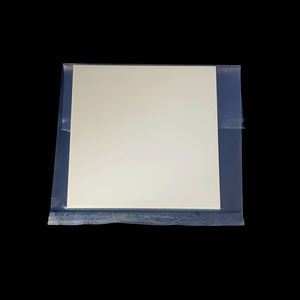
Porous Semiconductor Ceramics/insulating Electronic Ceramics/995 Alumina Ceramics
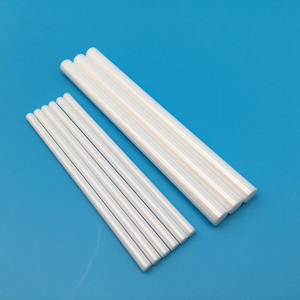
High Alumina Ceramic Heater Rod Porcelain Components 95

Al2O3 Ceramic Hot Selling Refractory Alumina Brick Kiln Rotary Kiln Building Making Clay Brick For Oven
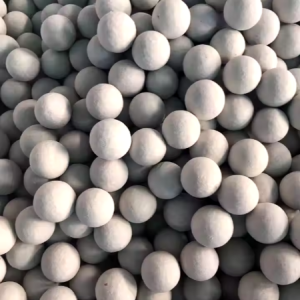
Al2O3 Ceramic 6mm,20mm Inert Alumina Ceramic Ball as Catalyst Support Media Ceramic Ball
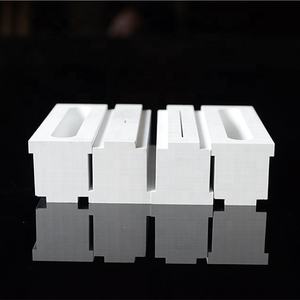
Customized Top Quality Wear Resistant Corrosion Resistant Alumina Zirconia Ceramic Industry Parts
